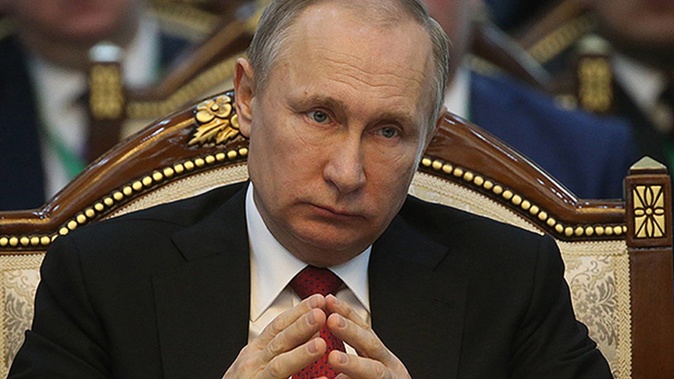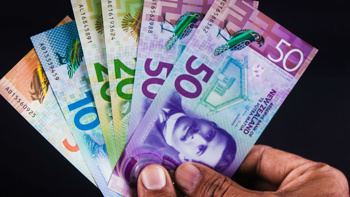
Vladimir Putin's grip on power is "weakening" and other political figures in the country are preparing for a "struggle" in the wake of his fall, a leading historian has suggested.
Timothy Snyder, a Professor of History at Yale University and author of the book On Tyranny, is an expert in the modern history of central and eastern Europe.
He firmly believes the Russian President's authority is eroding thanks to the Russian military's mounting losses on the battlefield in Ukraine.
Taking to social media, Snyder declared that "Putin's rule is weakening", highlighting one key move that proves he's losing his grip on power.
"We now regularly hear from people aside from Putin – for example, former prime minister and president Dmitry Medvedev – about the meaning of the war, the catastrophic consequences that await Ukraine and the West, and so forth. This is a sign Putin is losing control.
"Usually the news coverage of such pronouncements focuses on their content. It is tempting to get caught up in the Russian fear propaganda.
"But the real story is that people aside from Putin now feel authorised to make such proclamations. Before the war there was less of this."
He highlighted that while "doom propaganda" showed loyalty to Putin, it could be interpreted as a "power struggle" for when he eventually falls.
"If Russia loses the war, the people saying radical things now will have protected themselves. For my part, I tend to see the drastic proclamations as evidence that important Russians think Russia is losing," he said.
/cloudfront-ap-southeast-2.images.arcpublishing.com/nzme/HBPBIBVN4IA3KBT4PQ5HGJ7G6M.jpg)
Prof Snyder suggests Putin is "losing control" of Russia. Photo / Getty Images
"I'm not convinced Medvedev, who for years was seen as the liberal alternative to Putin, believes the anti-Semitic, anti-Polish, anti-Western hate speech he publishes. He is creating a profile that might be useful later.
"In Ukraine, Kadyrov's men [Chechnya leader] have arranged matters so as not to have taken very many casualties. From the perspective of his own interests, this makes sense. They are available for a further power struggle in a post-Putin Russia.
"Kadyrov now proposes that Russia locate air defence systems in Chechnya. His justification is that Ukraine might attack Chechnya, which is not credible.
"It sounds more like he is preparing for a post-Putin Russia in which Chechnya would claim independence."
Snyder said another sign Putin's "political strength" could be weakening is the army's perceived failures in Ukraine.
The army is a key source of Putin's appearance and if the illusion of "invincibility" is shattered, his personal image will take a massive hit.
"Putin can survive the army not being strong. But at a certain point, not being strong becomes not looking strong," he said.
"The Russian army is taking horrible losses in men, which suggests the next sign of Putin's weakness. The Russian state can mobilise its population for war only at the level of emotions, not bodies.
/cloudfront-ap-southeast-2.images.arcpublishing.com/nzme/TKOHTXINNYQOTQJZDDRALEQSNI.jpg)
Is Putin "lost in the fog" of a war he started?
"Russian regions are now working hard to find highly paid 'volunteers' who are sent to die with little training. Putin is clearly afraid a general mobilisation would undo his popularity and bring down his regime. In this sense he is weak.
"Putin has soft support for the war, so long as it is a television show, but cannot count on Russians to risk their actual bodies.
"The equilibrium that keeps Putin in power – mastery over rivals, support in the population, integrity of the army – is challenged by the realities of an unpredictable, costly war. Putin has been good at keeping us all in a fog. But now he himself seems lost in the fog of war."
One issue Putin finds himself in, says Snyder, is the Russian leader now has no clear escape route.
"The trap presented to him by rivals, by the public, by the army looks like this: we will all agree with you that we are winning the war, and we will all blame you if/when we lose it," the historian said.
"It is not clear how Putin can escape, except by declaring victory.
"Putin's gamble, as ever, is that the West will feel the pain faster than he will. This is how his foreign policy works – generate losses for everyone, including Russia, in the hope that the other side will concede first.
"Putin has seemed like a good gambler in the past. A good gambler, though, knows when to fold."
- Sam Clench, news.com.au & NZ Herald
Take your Radio, Podcasts and Music with you









